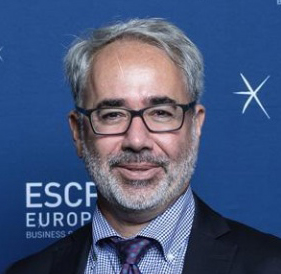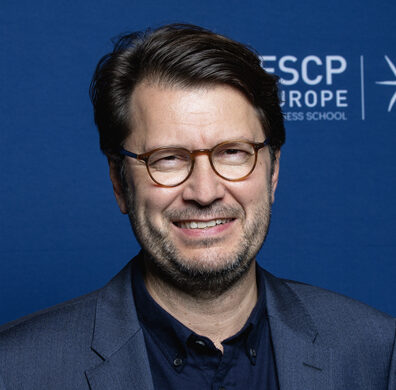How much freedom of speech, frankness and candour are operational in the age of whistle-blowers, ‘post-truth’ and ‘cancel culture’? Professors Jean-Philippe Bouilloud, Ghislain Deslandes and Guillaume Mercier argue that business leaders no longer have a choice but to assume this ambiguous position requiring specific skills.
Truth-telling appears to be an imperative for everyone in the organisation: the demand for truth is one that runs through every company and yet functions as a paradoxical injunction. On the one hand, it is demanded of managers, who must be transparent, and at the same time legislation is being passed (or attempted) to protect ‘business secrecy’, which means that it is impossible to protect ‘whistle-blowers’, who are themselves already in a state of tension between the desire not to cover up criminal behaviour and the fear of being perceived as traitors to the organisation.
Our research indicates that the role of the leader toward the corporation and the imperative of organisational performance place him/her in an ambiguous position: he/she is obliged to take the lead in “telling the truth” internally and externally, but also to bear the consequences of this “truth-telling” for the organization and for himself/herself
A truth consistent with the company’s best interests
Leaders are first of all organisers and figureheads of corporations’ truth-telling practices. They are responsible for determining the frontiers between truth that can be said and that which should remain hidden, both inside and outside the corporation. They must establish a dialogue based on truth (i.e., a sincere relationship with all partners), guarantee that the rules of truth-telling are respected, and offer a truth that is compatible with the firm’s economic and ethical interests.
A particularly telling example of the balance between truth-telling and this corporate best interest is the ’horsegate’ contamination scandal. After horse meat was found in frozen lasagne in the UK at a Tesco plant, Findus France decided to strengthen its DNA testing and thus discovered horse meat in frozen food processed by a subcontractor. The company then sounded the alarm, reported the offence to health authorities in Sweden, the United Kingdom and France, and launched DNA testing on some of its other products. The tests proved positive, Findus immediately withdrew from sale all adulterated foods and informed consumers. Subsequently, other client companies buying foods from the same subcontractor announced a product recall.
You gain by being transparent, you don’t gain by hiding things.
However, even after Findus itself blew the whistle the fraud still became the ‘Findus scandal’: “We found ourselves in the position of the accused when we had unmasked the fraud,” complained Findus France CEO Matthieu Lambeaux. According to him, telling the truth was the right solution even though the disclosure entailed a short-term financial cost (withdrawals, DNA tests and communication totalled one million euros in the first two weeks after the scandal broke out) and first took its toll on the company’s reputation. “Since we were transparent and explained the situation in simple terms, consumers got the picture,” he later said to explain that it had not harmed its business in the long term. “You gain by being transparent, you don’t gain by hiding things.”
The leader must then discern this corporate best interest, its adequacy with veridiction and, in the event of a conflict between the two, he/she must resolve this tension, decide between telling the truth and serving the best interest of the company.
In this sense, a leader must assume the full weight and responsibility of truth-telling, becoming the corporation’s ‘Chief Truth Officer.’ This responsibility to embody a truth which is consistent with the company and its environment requires the courage to tell the truth, as well as a certain practical wisdom.
Becoming Chief Truth Officer requires courage and practical wisdom
First and foremost, the responsibility of truth requires the courage to tell the truth, to speak frankly. Only then can he/she become for others (subordinates, peers, etc.) a model or example of truth-telling, through his/her person and behaviour.
While it may be a necessary condition, this courage with regard to the truth is not sufficient in itself. Certainly, we expect leaders to speak the truth, but we also expect them to act in a manner which ensures that the effects of the truth are consistent with the good of the organisation.
The leader must therefore deal with theconsequences of truth-telling, and the effects of thistruth: ‘speaking the truth’ may weaken the organisationfor which the leader is responsible. Revealing the truth may also significantly alter external, and even internal, opinions on the organisation.
Mastering the ‘speaking’ of the truth and its effects
This moral responsibility requires prudence and skill, a form of practical wisdom – the ability to discern or deliberate about the best decision to make, and to ethically determine the proper means for obtaining expected ends in a given situation.
This is what Alcatel CEO Serge Tchuruk should have considered before deciding to make a statement on 17 September, 1998, because he anticipated a lower than expected performance for the then current fiscal year: since financial analysts did not expect that a company in full growth would be hit by such a downturn, the share price of Alcatel’s stock dropped by 38.4%.
The leader must be capable of grasping the meaning of the situation and deciding how best to exercise his/her duty of truth-telling […] in the best interest of the company.
That incident prompted some international companies to think twice about what they should or should not say, and what performance or financial forecasts they should make so as to avoid what was subsequently referred to as the ‘Alcatel syndrome’ in France.
There is a fine dividing line between the legal obligation of supplying shareholders with transparent, true and fair information, and the potential risks that such information carries for the shareholders themselves, on account of the effects generated by the impact of its dissemination. The leader must be capable of grasping the meaning of the situation and deciding how best to exercise his/her duty of truth-telling in these circumstances, in the best interest of the company.

Leaders should take their interlocutors’ expectations into consideration, determining which truth they are ready to hear, and whether or not they will judge the truth to be improbable or unacceptable. The truth they are presented with may generate secondary effects, as in the Alcatel case.
Time will tell
Leaders must also be aware of the temporal dimension of truth-telling. Indeed, we might reasonably imagine that if accurate information had been provided about Alcatel’s true state of health as the dark clouds were looming, or if Findus had implemented systematic tests to prevent potential fraud before it was too late, the toll on these companies might have been considerably smaller.
Moreover, the mechanisms through which truth is received also need to be assessed. The impact of “self-fulfilling prophecies” clearly illustrates the potentially adverse effects of truth-telling and the potentially unexpected performative power of truth-telling over time.
This is a highly delicate exercise for any company, and leaders may call upon specialist public relations consultants to help them define the most effective manner in which to speak the truth.
If a key leader in the business world expresses legitimate concerns about his/her company’s performance, the mere mention of those fears may cause the downturn he/she was dreading. On a more general level, leaders may struggle to make their truth heard, to impose the truthfulness of their organisation. And this is a highly delicate exercise for any company, and leaders may call upon specialist public relations consultants to help them define the most effective manner in which to speak the truth.
The truth is out!
Ultimately, leaders are expected to speak (or not speak) the truth in response to dual imperatives, abiding by ethical requirements and legal constraints on the one hand, while also serving the economic interests of the organisation on the other. This creates tension between speaking or not speaking the truth. In the past, this often came down to a calculated judgement of how widely the truth is known outside the organisation.
But modern means of digital communication, the proliferation of forums and opportunities for individuals to share information and opinions, the creation of monitoring bodies in various fields, and the long series of revelations with political and civic ramifications (Panama Papers, etc.) have changed the game. With information accessible anywhere, anytime, we’re led to wonder whether the ‘post-truth’ era may not in fact prove to be the ‘post-secret’ era.
Keeping the truth hidden indefinitely looks like an increasingly impossible prospect, which suggests that courage and prudence in the face of truth will continue to be essential requirements of good leadership in the future.
This article is based on The Leader as Chief Truth Officer : The Ethical Responsibility of “Managing the Truth” in Organisations, published in Journal of Business Ethics.



Jean-Philippe Bouilloud
Professor of organisation, sociology of social sciences at ESCP Business School
Ghislain Deslandes
Professor of philosophy and management at ESCP Business School
Guillaume Mercier
Assistant professor in business ethics at IÉSEG School of Management
License and Republishing
The Choice - Republishing rules
We publish under a Creative Commons license with the following characteristics Attribution/Sharealike.
- You may not make any changes to the articles published on our site, except for dates, locations (according to the news, if necessary), and your editorial policy. The content must be reproduced and represented by the licensee as published by The Choice, without any cuts, additions, insertions, reductions, alterations or any other modifications.If changes are planned in the text, they must be made in agreement with the author before publication.
- Please make sure to cite the authors of the articles, ideally at the beginning of your republication.
- It is mandatory to cite The Choice and include a link to its homepage or the URL of thearticle. Insertion of The Choice’s logo is highly recommended.
- The sale of our articles in a separate way, in their entirety or in extracts, is not allowed , but you can publish them on pages including advertisements.
- Please request permission before republishing any of the images or pictures contained in our articles. Some of them are not available for republishing without authorization and payment. Please check the terms available in the image caption. However, it is possible to remove images or pictures used by The Choice or replace them with your own.
- Systematic and/or complete republication of the articles and content available on The Choice is prohibited.
- Republishing The Choice articles on a site whose access is entirely available by payment or by subscription is prohibited.
- For websites where access to digital content is restricted by a paywall, republication of The Choice articles, in their entirety, must be on the open access portion of those sites.
- The Choice reserves the right to enter into separate written agreements for the republication of its articles, under the non-exclusive Creative Commons licenses and with the permission of the authors. Please contact The Choice if you are interested at contact@the-choice.org.
Individual cases
Extracts: It is recommended that after republishing the first few lines or a paragraph of an article, you indicate "The entire article is available on ESCP’s media, The Choice" with a link to the article.
Citations: Citations of articles written by authors from The Choice should include a link to the URL of the authors’ article.
Translations: Translations may be considered modifications under The Choice's Creative Commons license, therefore these are not permitted without the approval of the article's author.
Modifications: Modifications are not permitted under the Creative Commons license of The Choice. However, authors may be contacted for authorization, prior to any publication, where a modification is planned. Without express consent, The Choice is not bound by any changes made to its content when republished.
Authorized connections / copyright assignment forms: Their use is not necessary as long as the republishing rules of this article are respected.
Print: The Choice articles can be republished according to the rules mentioned above, without the need to include the view counter and links in a printed version.
If you choose this option, please send an image of the republished article to The Choice team so that the author can review it.
Podcasts and videos: Videos and podcasts whose copyrights belong to The Choice are also under a Creative Commons license. Therefore, the same republishing rules apply to them.





